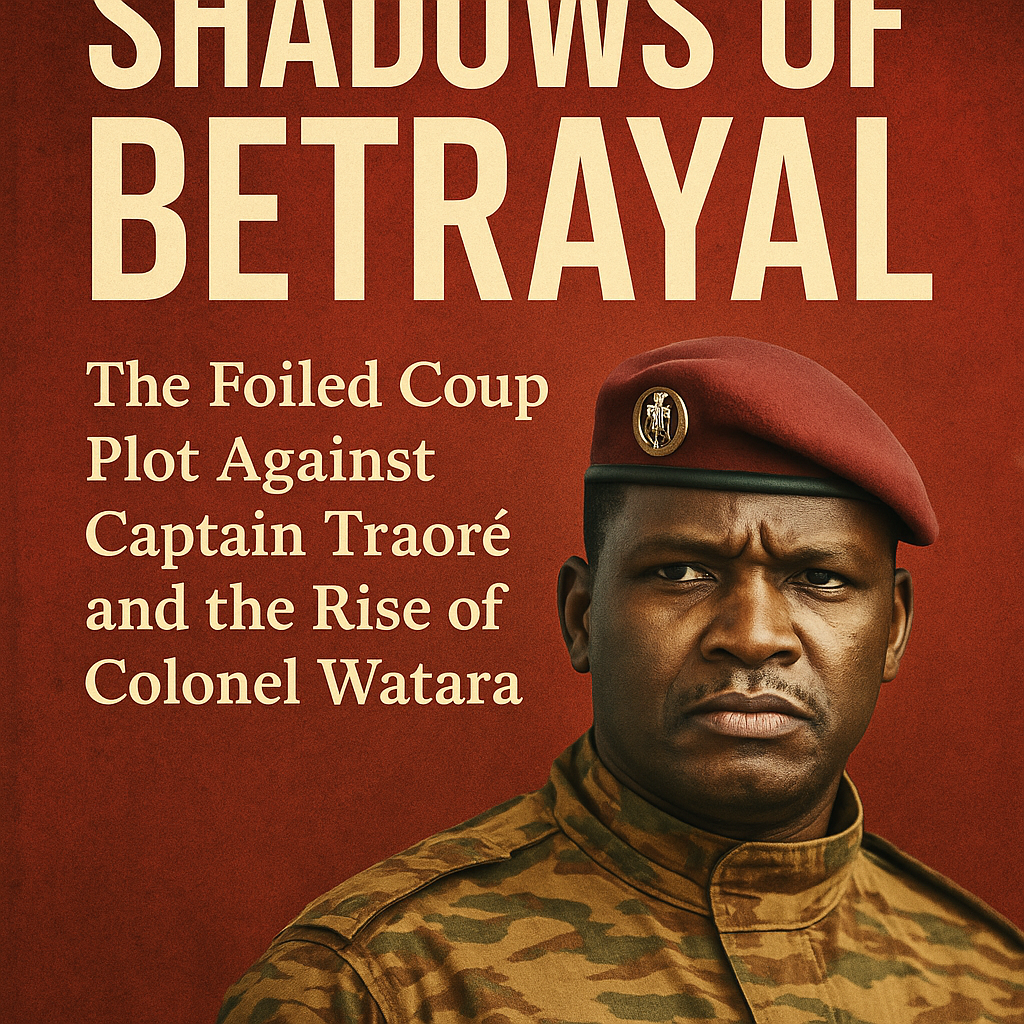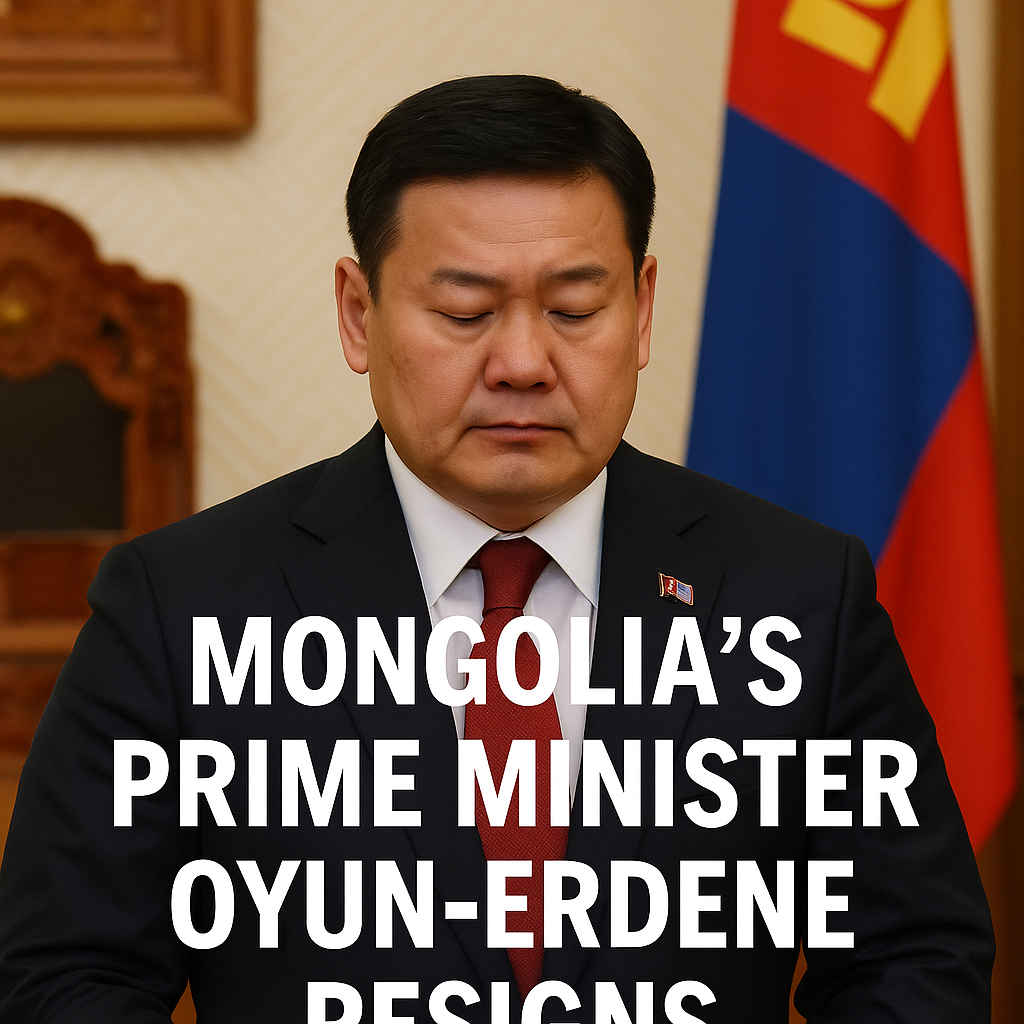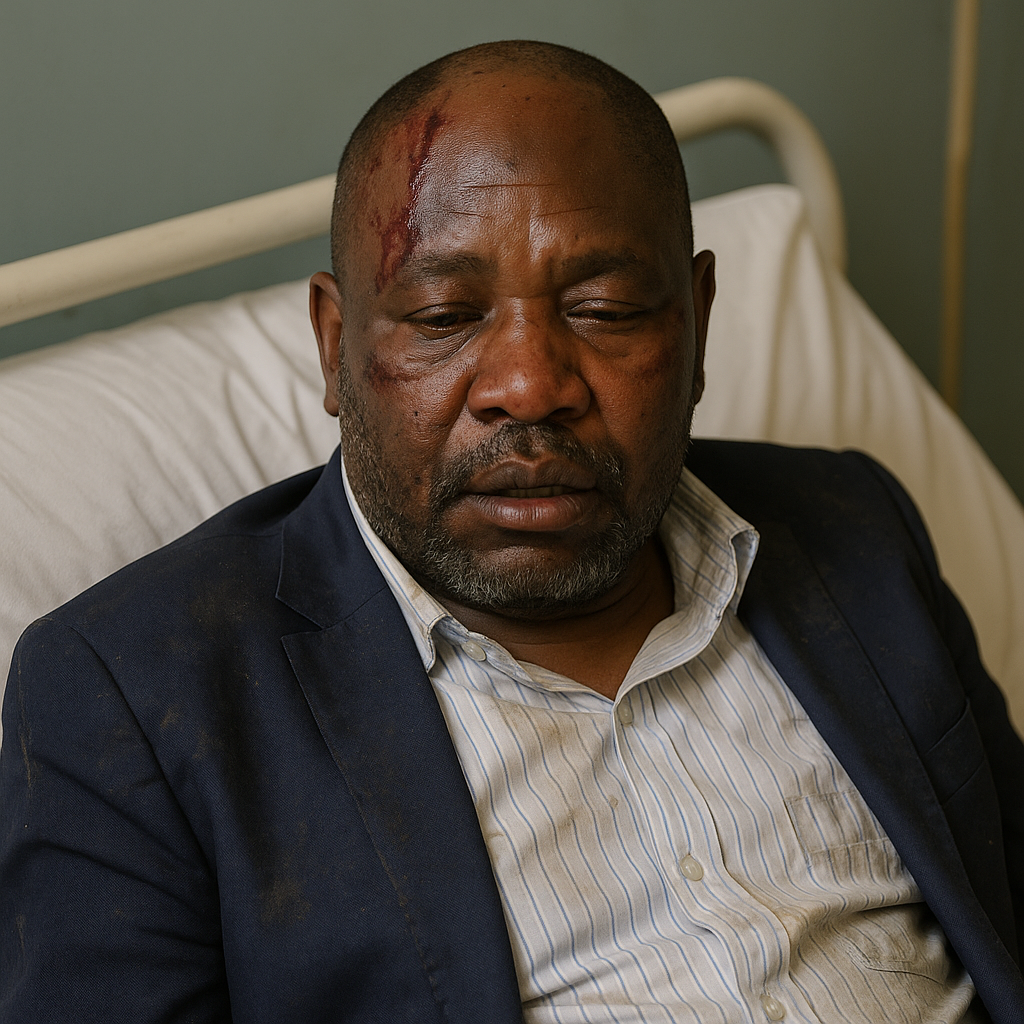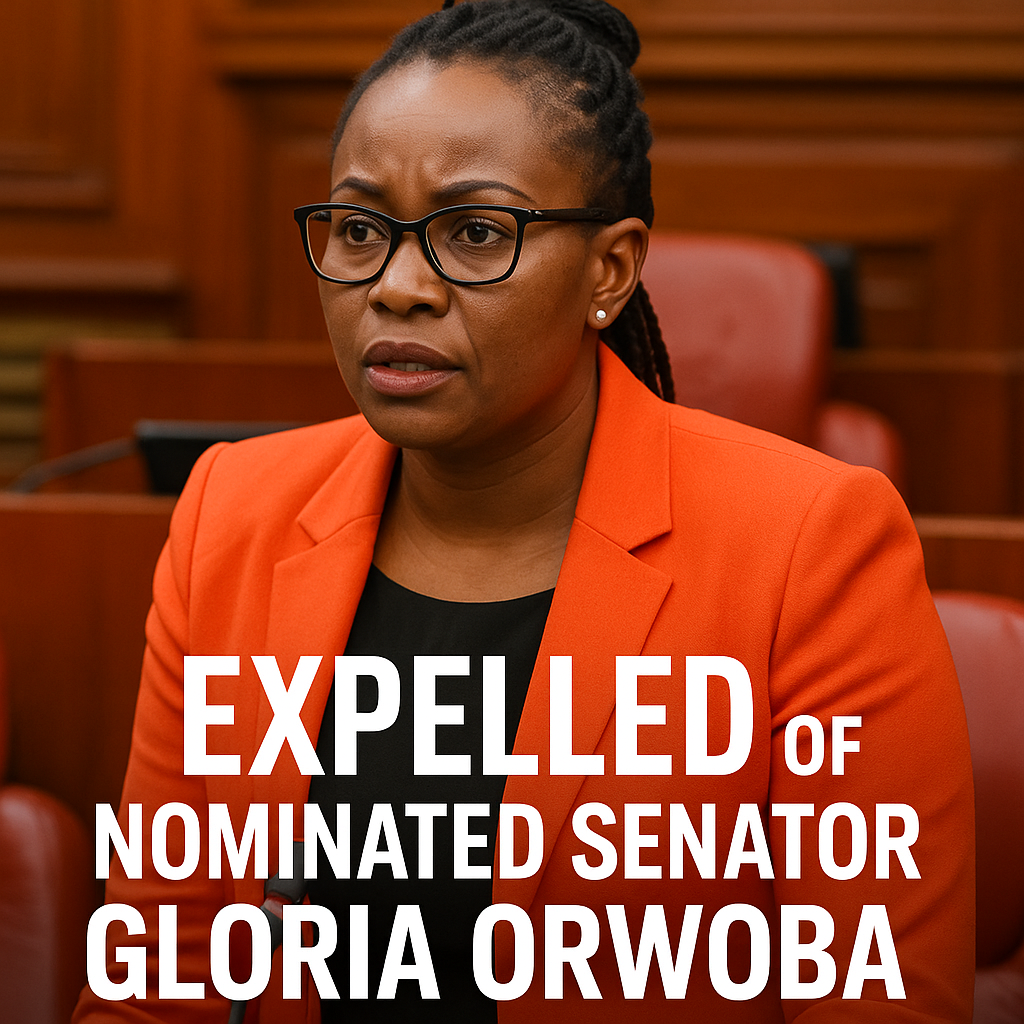How Colonel Watara’s Alleged Plot Exposed Deep Divisions Within Burkina Faso’s Military
Thank you for reading this post, don't forget to subscribe!Burkina Faso, a landlocked West African nation that has suffered numerous coups, found itself on the edge of another political storm in April 2025. This time, the threat didn’t come from insurgents in the bush or external enemies but from within — orchestrated by individuals within the military ranks, the very institution meant to safeguard national sovereignty. At the center of this latest intrigue stands a man whose name is now etched in controversy: Colonel Watara.
A Nation on the Brink
Burkina Faso has been engulfed in political instability for over a decade, frequently shaken by jihadist violence and coups. After years of democratic experiments and military takeovers, the rise of Captain Ibrahim Traoré in 2022 marked yet another chapter in the country’s turbulent history. Traoré, who led a coup against Lieutenant Colonel Paul-Henri Damiba, promised a new dawn — a war against corruption, a renewed focus on security, and the restoration of national dignity.
Despite his youthful charisma and reformist rhetoric, Traoré’s rule has not been without challenges. Under his watch, jihadist attacks have persisted, internal political fractures have deepened, and public trust in governance remains fragile. It is within this pressure cooker environment that the plot spearheaded by Colonel Watara emerged, threatening to unravel what little stability remained.
The Emergence of Colonel Watara
Before his alleged involvement in the failed coup, Colonel Watara was not a household name. A career officer, Watara served in various military capacities and was once considered a promising figure within the armed forces. However, as Captain Traoré consolidated power and began a series of military reforms, certain factions within the military grew uneasy. Whispers of discontent spread across ranks, especially among officers who felt sidelined or whose loyalties were more aligned with previous regimes.
Colonel Watara’s name began surfacing quietly — first in discussions about “dissident officers,” later in intelligence briefings hinting at a possible threat from within. His connection to influential networks in neighboring Ivory Coast, where many exiled Burkinabé officials and military figures reside, only added to the suspicion.
The Plot Uncovered
On April 12, 2025, Burkina Faso’s transitional government announced it had uncovered and thwarted a coup plot targeting President Traoré. In a swift and highly coordinated operation, military intelligence officers arrested several suspected conspirators. Among them was Colonel Watara, alleged to be the mastermind of the operation.
According to official statements, the coup plot involved a plan to storm the presidential palace in Ouagadougou, neutralize key loyalist forces, and install a transitional military council with external support. The government claims that the conspirators had secured foreign backing, potentially from actors in Ivory Coast, and had even reached out to terrorist leaders in the Sahel to destabilize the capital and create the chaos needed for a takeover.
More shockingly, intercepted communications suggested that the plan wasn’t merely to seize power, but to submit the country to international supervision, effectively suspending its sovereignty in favor of an externally mediated “peace process.” For Traoré and his allies, this was nothing short of treason.
The Alleged Ivorian Connection
One of the most explosive revelations from the Burkinabé government was the assertion that the coup was coordinated in part from Abidjan, the economic capital of Ivory Coast. While Ivorian authorities have denied any involvement and insisted on their neutrality, Burkina Faso’s accusations have sent ripples through regional diplomacy.
Colonel Watara’s alleged presence in Ivory Coast prior to the operation, as well as connections to former Burkinabé politicians living in exile, have only added to the speculation. If true, this would mark a serious diplomatic rift between two neighbors whose cooperation is essential for regional stability.
Analysts suggest that if certain factions in Ivory Coast were indeed aware — or worse, complicit — in the coup attempt, it could destabilize not just Burkina Faso but much of West Africa, a region already under strain from coups in Mali, Guinea, and Niger.
Motives Behind the Coup
The motives driving Colonel Watara and his co-conspirators remain speculative, but several plausible explanations have emerged:
- Power Struggles Within the Military: Like many military-led governments, factions quickly emerge. Officers once allies become rivals, especially when promotions, budgets, and influence are at stake.
- Disillusionment with Traoré’s Leadership: Despite his promises, Traoré has struggled to stem the tide of jihadist violence, especially in rural areas. Some officers may view his leadership as ineffective or disconnected from the realities on the ground.
- Foreign Interests and Exile Politics: External actors and exiled political figures may have viewed Watara as a more compliant or cooperative figure, willing to align Burkina Faso with foreign interests in exchange for power.
- Desperation and Opportunism: In unstable political environments, coups are often not ideologically driven but opportunistic — an attempt to seize power before someone else does.
Reactions from the Burkinabé Public
News of the coup attempt spread quickly across Burkina Faso, with mixed reactions. Many citizens, especially in Ouagadougou, expressed relief that the plot was foiled, fearing another round of chaos. Others, however, voiced skepticism, questioning the official narrative and wondering if the threat was exaggerated to justify further crackdowns on dissent.
In the days that followed, pro-Traoré rallies were organized, featuring patriotic music, anti-coup slogans, and speeches emphasizing the “unity of the people and army.” Yet, beneath the surface, anxiety lingers. The very fact that a senior officer like Colonel Watara could allegedly come so close to toppling the government suggests vulnerabilities that no amount of official optimism can erase.
International Reactions
International partners, including the African Union, ECOWAS, and France, condemned the coup attempt and expressed support for constitutional order in Burkina Faso. The United Nations issued a cautious statement, calling for investigations and urging all parties to respect democratic norms — even in a country currently under military rule.
Ivory Coast, for its part, issued a firm denial of any involvement and warned against the politicization of bilateral relations. Nonetheless, rumors of deeper entanglements between dissident Burkinabé officers and foreign actors continue to circulate, raising tensions in diplomatic circles.
The Fallout: What Comes Next?
The aftermath of the failed coup is still unfolding, but already the implications are profound:
- Military Purge: Captain Traoré’s government has launched an internal review of military ranks, with reports of dismissals, reassignments, and arrests. A purge of suspected Watara sympathizers is likely.
- Tighter Security Measures: Checkpoints, intelligence operations, and surveillance activities have intensified, especially around the capital and military installations.
- Reinforced Presidential Power: Traoré has used the incident to reinforce his position, calling for national unity and warning of internal enemies who seek to destroy the nation from within.
- Diminished Civil Liberties: There are growing concerns that this incident could be used to justify repressive measures against journalists, activists, and opposition voices. In a country where freedom of expression is already under strain, this could worsen the democratic deficit.
Colonel Watara: A Symbol or a Scapegoat?
As the investigation continues, some observers are beginning to question whether Colonel Watara was truly the ringleader or merely a symbolic scapegoat for deeper fractures within the military establishment. Was he acting alone, or was he a pawn in a broader game involving regional politics and disillusioned power brokers?
The lack of independent media access to Watara or his alleged co-conspirators raises serious questions about due process. As of this writing, Colonel Watara remains in custody, and the exact details of his interrogation and legal proceedings are tightly controlled by military authorities.
Lessons for the Region
The failed coup in Burkina Faso is more than just another headline in West Africa’s cycle of instability. It highlights several key challenges:
- The Fragility of Military Regimes: Even with tight control, military governments are inherently unstable. Ambition, ego, and ideology often clash, leading to power struggles and bloodshed.
- The Role of Foreign Influence: Whether through former colonial powers, regional allies, or shadowy networks, external actors continue to play a role in shaping internal politics — sometimes with destabilizing consequences.
- The Demand for Civilian Governance: Ultimately, these repeated coups and failed plots underscore the need for a return to civilian-led, democratic governance with accountable institutions and transparent leadership.
Conclusion: The Battle for Burkina Faso’s Soul
Colonel Watara’s name will now be associated with betrayal, treachery, and ambition. But his story is also a reflection of a nation caught between its past and future — a nation where the line between patriotism and power-grabbing is often blurred.
As Captain Ibrahim Traoré tightens his grip and seeks to project stability, the deeper currents of discontent remain. The people of Burkina Faso, weary of war, coups, and corruption, yearn for a different path — one where justice, peace, and prosperity are not just slogans but realities.
Whether this latest chapter marks the beginning of a new resolve or the continuation of a tragic cycle depends not only on the fate of Colonel Watara but on the choices made in the weeks and months to come.



